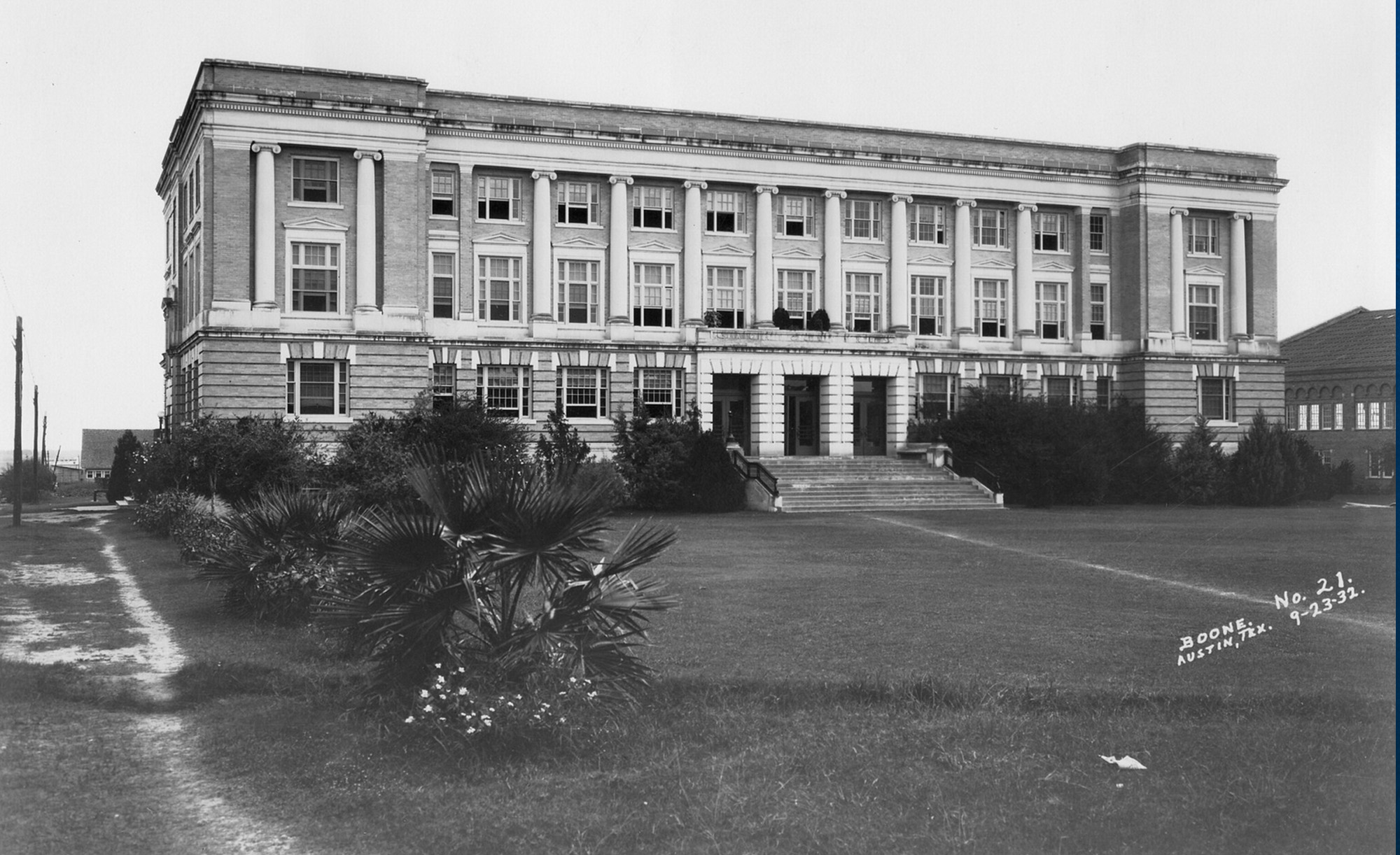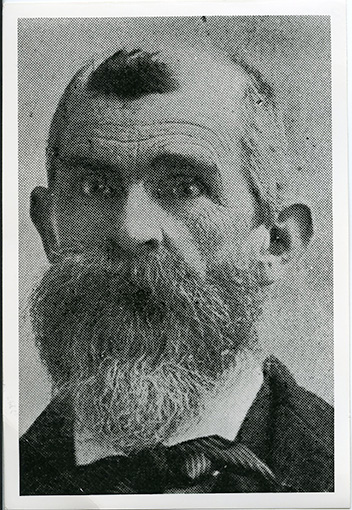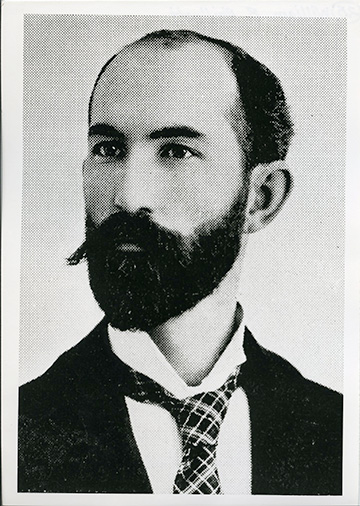
In 1900, Texas A&M University looked very different. Back then, it was known as the Agricultural Mechanical College of Texas, the student body was exclusively male, membership in the Corps of Cadets was mandatory, and two faculty members — William Bledsoe Philpott and Charles Woodward Hutson — were launching the Department of History. Now in its 125th year, this internationally recognized department offers a global curriculum, award-winning faculty and countless opportunities for students to engage with the past in ways that shape the future.
“History is the study of how and why people in the past made decisions, and the consequences of those decisions, even today,” said Dr. Angela Pulley Hudson, department head. “Whether rooted in a childhood fascination with a particular era or event, a unique family history or the influence of a dedicated teacher, our students tend to care deeply about the topics they study.”
A Humble Beginning
While the department itself began in 1900, the study of history has been part of Texas A&M’s curriculum since its earliest days. Founded in 1876, Texas A&M — like many American universities at the time — was shaped by the classical model of education. This approach emphasized the study of the liberal arts — particularly grammar, logic and rhetoric, alongside courses in ancient languages, English and moral philosophy.

“Some form of history has been taught at Texas A&M since its founding,” Hudson said. “The emphasis in the institution’s early years was on classical antiquity — ancient Greece and Rome — with a sprinkling of early American history.”
By 1888, English and history had been formally grouped into a single academic department. That partnership lasted until the summer of 1900, when history became an independent department, with Charles W. Hutson appointed as its first department head.
“The first woman to attend classes at the university was Ethel Hutson in 1893, the daughter of history professor and later department head Charles Huston,” Hudson said.
Over the next century, the department weathered major global events, from two world wars to the Great Depression, and continued into the next millennium.
An Emerging Present
Today, the Department of History boasts 42 faculty members and a curriculum that spans every continent and nearly every era of human existence.
“Our undergraduate offerings now include more than 25 introductory level courses and more than 100 upper-division courses,” Hudson said. “In both our undergraduate and graduate programs, we have recently added new courses that further enhance the curriculum by introducing new methods and training. These include classes in digital history methods and approaches to public history, as well as a Legal History Certificate to support students seeking careers in law and policy.”
The Department of History remains one of the university’s most enduring academic institutions even after 125 years, and one of its most forward-looking. Part of that longevity stems from the department’s ability to provide students with practical skills like evaluating evidence and communicating effectively.
“Many students come to our program because they have a long-standing passion for history,” Hudson said. “But they also understand the value of our major and minor for building essential skills like conducting research, assembling evidence, developing persuasive arguments and refining their writing abilities. These are crucial in fields like education and law, but also in business, government and charitable work.”

In addition to those practical skills, students benefit from an engaging academic environment shaped by faculty who are not only dedicated teachers but also leading researchers in their fields. This provides numerous opportunities for students to participate in hands-on historical research beyond the classroom.
“Whether they are taking introductory survey courses or upper division topic-driven courses, students here will have an unmatched opportunity to interact with world-class researchers,” Hudson said. “Our faculty are award-winning scholars whose impact is felt across the discipline and around the globe.”
The department’s reputation continues to grow thanks to its faculty’s diverse strengths. Latinx History and War and Society Studies are among its most prominent areas of excellence, and recent accolades reflect the breadth of scholarship taking place in the department.
Dr. Sonia Hernández received the 2024 Bolton-Cutter Award from the Western History Association for her work on gender and state violence in the U.S.-Mexico borderlands. Dr. Sarah McNamara’s Ybor City: Crucible of the Latina South earned five national awards for its contributions to labor history, women’s history and southern history. In war and society studies, history Ph.D. student Tristan Krause was awarded a competitive German Academic Exchange Service grant to support his research on missing American military personnel following World War II.
A Brilliant Future
This fall, the department welcomed Dr. Gregory Daddis, a distinguished historian of the Vietnam War, to serve as the Melbern G. Glasscock Endowed Chair in American History.
“Our faculty are passionate about their research, and they bring that dedication and enthusiasm to the classroom,” Hudson said. “Our teaching is integral to our research and vice versa.”
Hudson is focused on building from the department’s past to shape its future. Her vision includes expanding internship opportunities to boost career readiness and investing in recruitment and retention of top-tier faculty.
“My priorities as department head are three-fold,” she said. “To enhance the educational experience for our students by expanding high-impact learning opportunities; to support and empower faculty to conduct and communicate world-class research with broad impact; and to be of service to our communities.”
At its core, the department’s mission remains committed to helping students think deeply and critically about the world around them.
“Studying history is important because it helps us situate human experiences through time with the complex social, cultural and environmental contexts that shaped them,” Hudson said. “It is not a memorized chronicle of names and dates. It is a critical practice of asking informed questions and developing nuanced answers.”
After 125 years, the Texas A&M University Department of History continues to evolve, but its dedication to scholarship, mentorship and public engagement endures. With a legacy built on critical inquiry, the department is well positioned to guide the next generation of students into the future.
Read more about it in "A Brief History of History" on the Department of History website.
Upcoming History Events
Sept. 26
125 Years of Partnering with Our Community
Oct. 3
125 Years of Texas and Borderlands History
Oct. 8
125 Years of War and Society History
Nov. 4-5

